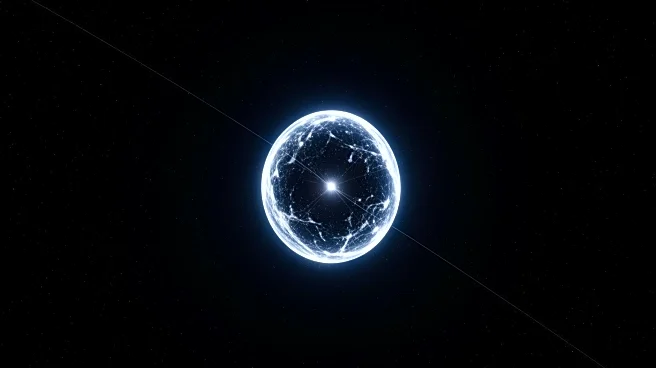What's Happening?
Researchers from the University of Geneva have confirmed that dark matter, a mysterious component of the universe, obeys the laws of gravity on a cosmological scale. This discovery challenges the hypothesis of a fifth fundamental force of nature. By comparing
the velocities of galaxies with the depth of gravitational wells, scientists found that dark matter behaves similarly to ordinary matter, falling into these wells as predicted by general relativity. While this finding does not completely rule out the existence of a fifth force, it places significant constraints on its potential strength.
Why It's Important?
Understanding dark matter's behavior is crucial for comprehending the universe's structure and evolution. This confirmation of dark matter's gravitational interaction helps refine existing models of the cosmos and limits the scope for alternative theories involving unknown forces. The research provides a clearer picture of how dark matter influences galaxy formation and cosmic development, which is essential for advancing astrophysical theories and models. It also guides future research directions, focusing on refining gravitational models rather than exploring new fundamental forces.
What's Next?
Upcoming data from experiments like the Legacy Survey of Space and Time (LSST) and the Dark Energy Spectroscopic Instrument (DESI) are expected to further test the limits of any potential fifth force. These experiments will provide more precise measurements, potentially detecting forces as weak as 2% of gravity. Such advancements will enhance our understanding of dark matter's role in the universe and could lead to new discoveries about the fundamental forces governing cosmic phenomena.















